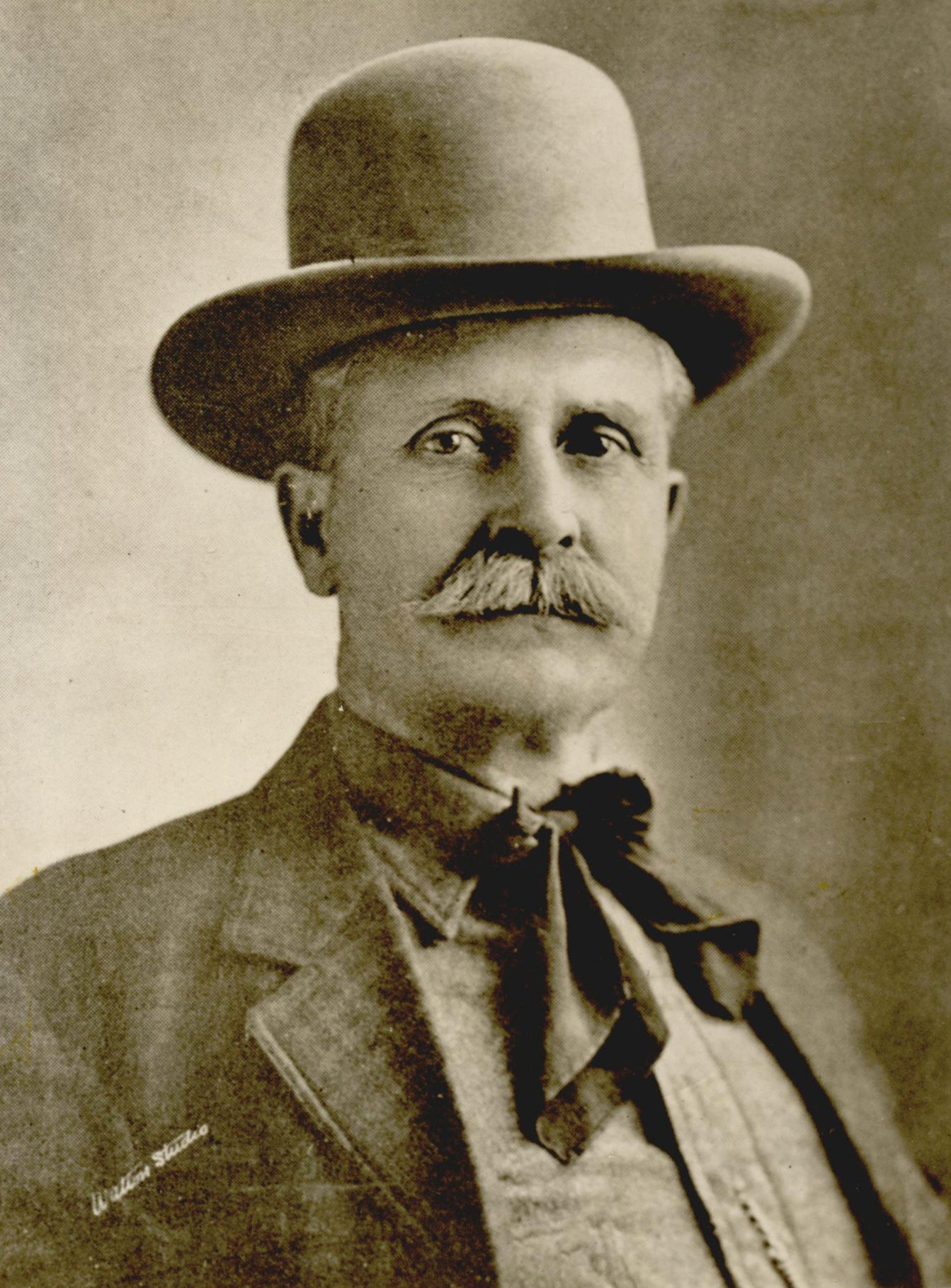
The Encyclopedia of Oklahoma History and Culture
TILGHMAN, WILLIAM MATTHEW, JR. (1854–1924).
William M. "Bill" Tilghman, Jr., was born July 4, 1854, in Fort Dodge, Iowa. Two years later the family moved to a Kansas farm. By age sixteen he hunted buffalo, due to the lucrative market for buffalo hides. Operating from Fort Dodge, Kansas, Tilghman scouted for the army until 1877, when he was appointed deputy sheriff of Ford County, Kansas. That same year he married a widow, Flora Kendall, and began a small ranch on a homestead near Dodge City. Through the years he operated two saloons in Dodge, and in 1884 he was appointed city marshal, ably serving the famous cattle town for two years. In 1888 Tilghman became involved with the Wichita County, Kansas, seat war, killing Ed Prather on the Fourth of July in a saloon fight. The following year Tilghman was hired by one of the factions in the Gray County, Kansas, seat war.
Attracted to the Land Run of 1889, Tilghman located a claim near Guthrie, Oklahoma Territory. After the Cherokee Outlet Opening in 1893, while he was working as a peace officer in the boomtown of Perry, he killed a troublemaker called Crescent Sam on September 17, 1893. During this period Tilghman moved his wife and four children to a stud farm near Chandler. Flora Tilghman contracted tuberculosis and in 1897 returned to her mother's Dodge City home and filed for divorce. Flora died in 1900. In 1903, at age forty-eight, Tilghman married a twenty-two-year-old schoolteacher, Zoe Agnes Stratton, who later wrote her husband's biography. The Tilghmans had three children.
During the 1890s Tilghman was a deputy U.S. marshal and skilled man hunter, collecting significant amounts of reward money. Deputy Marshal Tilghman was one of Oklahoma's famous "Three Guardsmen," including fellow man hunter Heck Thomas and the somewhat overrated Chris Madsen. In 1895 Tilghman and Thomas wounded and captured fugitive "Little Dick" Raidler. The following year Tilghman effected the solitary arrest of notorious gang leader Bill Doolin. Doolin soon escaped from jail but was tracked down and killed by a posse led by Thomas. In 1900 and 1902 Tilghman was elected as Lincoln County sheriff.
In 1910 Tilghman was elected to the state senate but resigned in 1911 to serve as Oklahoma City's police chief. Beginning in 1908 he helped film four Western motion pictures, including The Passing of the Oklahoma Outlaws, released in 1915. Tilghman exhibited that film for several years.
In August 1924, at age seventy, he was persuaded to leave retirement and became city marshal at Cromwell, a booming Oklahoma oil town. On November 1, 1924, a drunken prohibition agent, Wiley Lynn, shot Tilghman twice with a hideout gun, killing the last great peace officer of the Old West. The murderer won acquittal, only to be shot and killed in 1932. Zoe Tilghman bitterly observed, "No jury on earth can acquit him now."






